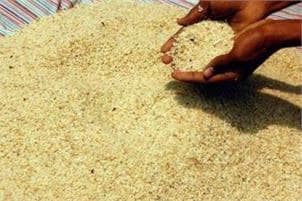India-Pakistan Tug Of War Over Gi Tag For Basmati Rice Takes A New Turn

A recent judgement of a European Union court has misled Pakistan into believing that its geographical indication (GI) rights over Basmati rice have been upheld. The judgement gains significance in view of the tussle over GI rights between India and Pakistan.
India and Pakistan have been in a tug of war over exclusive trademark rights on long-grain Basmati rice. India applied to the EU for protected geographical indication (PGI) status for Basmati rice last year. Pakistan opposed the move as it would deal an adverse blow to the country’s exports to EU. India and Pakistan are the only two countries that export Basmati rice to the world.
Pakistan’s claim that the latest judgement upholds its rights over Basmati rice is unsubstantiated, S. Chandrasekaran, author of the book, Basmati Rice: The Natural History Geographical Indication, told The Hindu BusinessLine.
The case
In October 2017, the UK-based Indo European Food Ltd appealed to the European Union Intellectual Property Office (EUIPO) against registration of the trademark by Venice-based distributor Hamid Ahmad Chakari. Chakari is a distributor in the EU who buys rice from Pakistan, while Indo European Food Ltd is a wholly-owned subsidiary of India’s Kohinoor Foods Ltd that markets Basmati rice.
Chakari had obtained the non-registered trademark for rice flour, rice cakes, rice-based snacks, extruded food products made of rice, rice pulp for culinary purposes and rice meal for forage.
According to Indo European Food Ltd, the trademark relied upon the goodwill associated with the name Basmati.
The UK firm also said use of the words, ‘Abresham Super Basmati Selaa Grade One World’s Best Rice,’ indicated that the product was Basmati rice and if the rice used was of any other type, it would lead to misrepresentation. This would damage the goodwill of the Basmati rice brand.
The EUIPO rejected the arguments by Indo European Ltd in April 2019, saying it failed to provide sufficient evidence that the registration of the trademark caused loss to the firm.
“There was no argument to explain how use of the mark applied for could affect the distinctiveness of the name ‘basmati’,” the EUIPO board of appeal had said.
What is the EU court judgement?
The ruling by the Court of Justice of EU came on an appeal filed by Indo European Food Ltd against the European Union Intellectual Property Office (EUIPO) judgement.
The Luxembourg-based Court of Justice upheld the registration of ‘Abresham Super Basmati Selaa Grade One World’s Best Rice’ in the EU and said Indo European Ltd “failed to demonstrate” how the trademark would result in misrepresentation of the name Basmati.
However, it agreed that a small part of the public could believe that the goods were in some way associated with Basmati rice.
The Rice Exporters Association of Pakistan hailed the judgement and said it “successfully” crushed the Indian application of GI tag for its Basmati rice in the EU.
India still in the race
Chandrasekaran said Pakistan is wrongly under the impression that the Court of Justice recognised its Basmati variety.
Since 2017, the Indian Patent Office has given GI tag for Basmati rice, thereby protecting the exclusivity of the long-grain fragrant rice across the world.
As the 2017 case revolved around a non-registered product, the Indian registration supersedes such a claim, the expert said. It is now an internationally settled law.
With the domestic GI tag, India has the legal means to challenge any registered or non-registered trademark post-2017, Chandrasekaran said.
(Edited by : Shoma Bhattacharjee)

“평생 사상가. 웹 광신자. 좀비 중독자. 커뮤니케이터. 창조자. 프리랜서 여행 애호가.”
